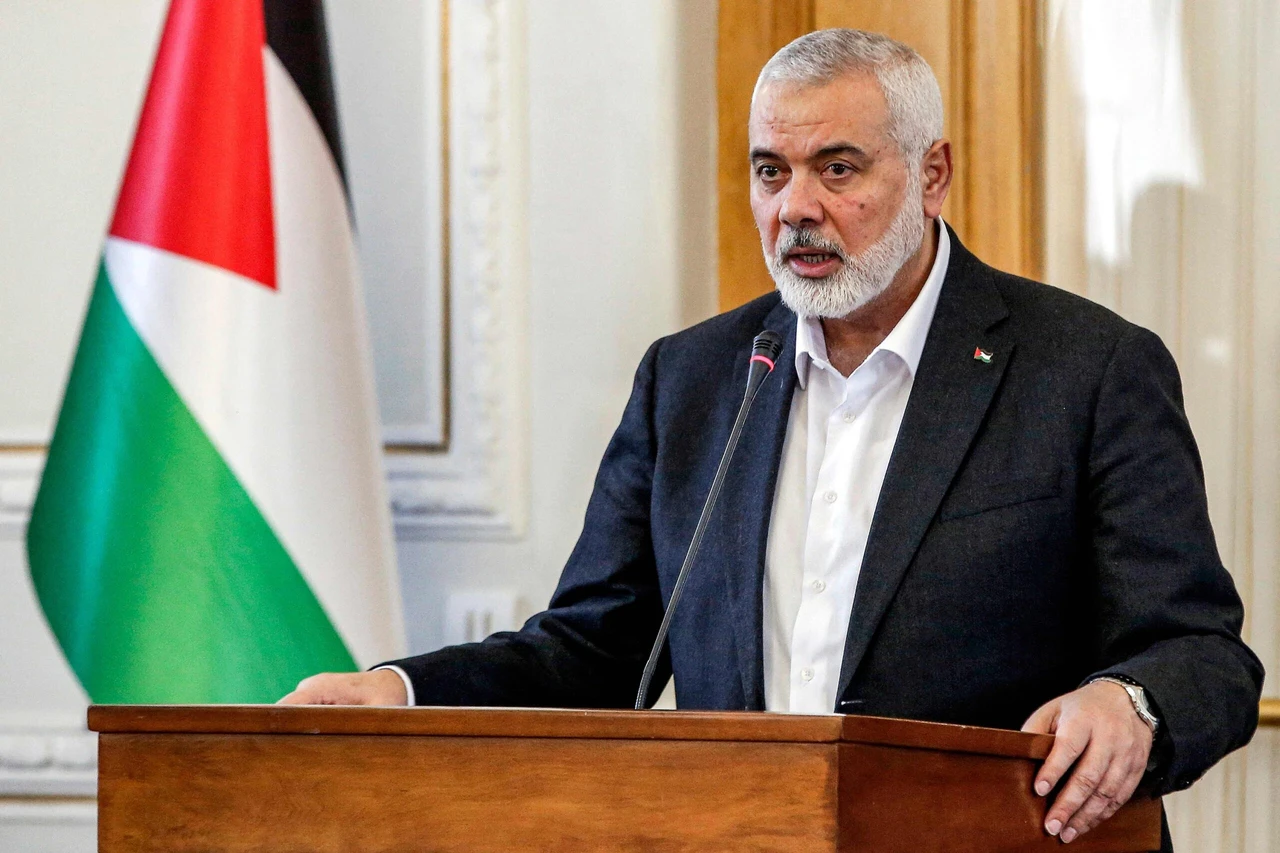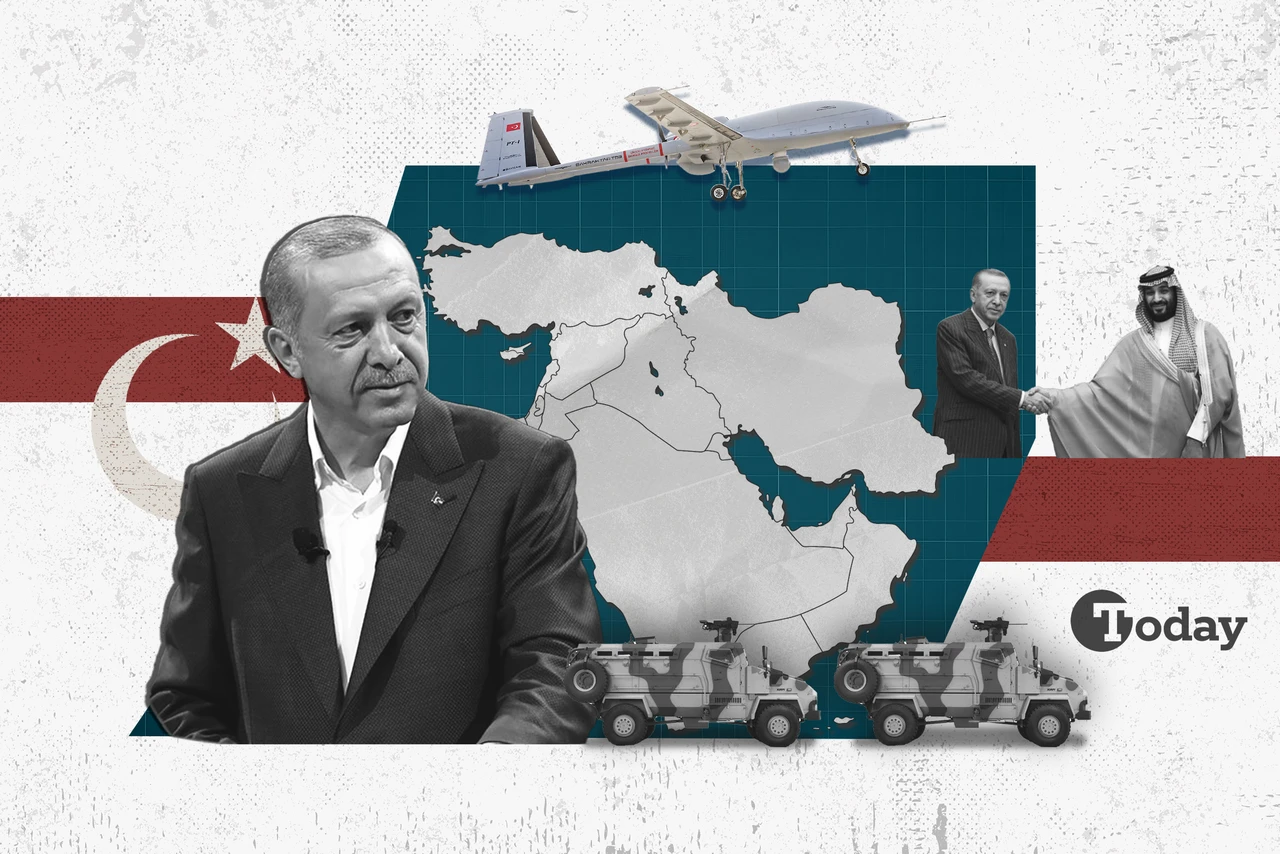Who was Ismail Haniyeh: From refugee to Hamas leader
 Ismail Haniyeh, the Doha-based political bureau chief of the Palestinian resistance movement Hamas, speaks to the press after a meeting with the Iranian foreign minister in Tehran on March 26, 2024. (AFP File Photo)
Ismail Haniyeh, the Doha-based political bureau chief of the Palestinian resistance movement Hamas, speaks to the press after a meeting with the Iranian foreign minister in Tehran on March 26, 2024. (AFP File Photo)
Ismail Haniyeh, head of the Political Bureau of the Palestinian resistance movement Hamas, was assassinated in Tehran along with one of his bodyguards, according to Iran’s Revolutionary Guards.
Why it matters: Haniyeh was a prominent figure in Palestinian resistance, with his life marked by intense conflict and leadership within Hamas. His assassination could further escalate tensions between Israel and Palestinian factions, and impact regional dynamics, particularly Iran’s influence in the area.
Who was this prominent figure whose life was marked by intense conflict?
Who was Haniyeh?
Ismail Haniyeh was born in 1963 in the Al-Shati refugee camp in Gaza. His early life was shaped by the realities of growing up in a refugee camp, and he completed his primary and secondary education in schools supported by the United Nations High Commissioner for Refugees (UNHCR).
Political involvement: Haniyeh’s political journey began during his high school years when he joined the Muslim Brotherhood. He became active in the Islamic Student Association and later graduated from the Islamic University of Gaza with a degree in Arabic language and literature.
- Hamas membership: Haniyeh joined Hamas when it was founded during the first Palestinian intifada in 1987. His involvement with Hamas led to multiple arrests and imprisonments by Israeli authorities.
- Exile and return: In 1992, Haniyeh, along with 415 other Hamas leaders, was exiled by Israel to southern Lebanon. He returned to Gaza a year later and became Hamas’ representative on the Intifada Coordination Committee.
Leadership roles:
- Chief of Staff for Ahmed Yassin: From 1999 to 2004, Haniyeh served as the chief of staff for Ahmed Yassin, the founder of Hamas. This role positioned him as a key figure within the organization.
- Prime minister: Haniyeh was elected as the 10th prime minister of Palestine in 2006, following Hamas’ victory in the Palestinian legislative elections. However, in 2007, he was dismissed by President Mahmoud Abbas amid violent clashes between Hamas and Fatah in Gaza. Despite this, Hamas rejected the decree, and Haniyeh continued to function as the prime minister in the Gaza Strip.
- Head of Hamas’ Political Bureau: Since May 2017, Haniyeh served as the chairman of Hamas’ Political Bureau, making him one of the most influential leaders within the organization.
Zoom in: On April 10, 2024, the Israeli military targeted a vehicle carrying members of Haniyeh’s family as they traveled to celebrate Ramadan Bayram in the Al-Shati refugee camp in western Gaza. The airstrike claimed the lives of Haniyeh’s three sons – Hazem, Amir and Mohammad – as well as four of his grandchildren.
My children did not leave Gaza; they sacrificed their lives for the liberation of Jerusalem and Al-Aqsa Mosque
Ismail Haniyeh
The big picture: Haniyeh’s death comes after a series of high-profile Israeli airstrikes targeting key figures in Palestinian and Hezbollah leadership. His assassination is seen as a significant blow to Hamas and could have a profound impact on the ongoing conflict between Israel and Palestinian factions.
Diplomatic efforts:
- International relations: Haniyeh was seen as a more moderate figure compared to other hardline members of Hamas. He was deeply involved in international diplomacy, engaging in talks with various Arab governments, including Türkiye, Egypt, and Iran. His efforts included working toward cease-fire negotiations with Israel, despite the complex dynamics within Hamas.
- Relations with Iran: Haniyeh maintained strong ties with Iran, a key supporter of Hamas. His assassination in Tehran underscores the close relationship between Hamas and the Iranian government.
Controversial figure: Haniyeh’s leadership was not without controversy. His visits to Türkiye and meetings with President Recep Tayyip Erdogan were criticized by the United States, which considers Hamas a terrorist organization. The U.S. government expressed concerns that Türkiye’s support for Hamas isolated it from the international community and undermined efforts to prevent terrorism.
What they’re saying:
- Iranian response: Foreign Ministry spokesperson Nasser Kanaani offered condolences to the Palestinian people and resistance groups but notably did not condemn the Israeli attack, signaling a calculated response from Iran.
- Turkish stance: The Foreign Ministry has issued a strong condemnation following the assassination of Hamas leader Ismail Haniyeh, labeling the act as “heinous” and a significant threat to regional peace. The Ministry emphasized that the attack underscores the Netanyahu government’s lack of intent to pursue peace, further exacerbating tensions in the Middle East.
Legacy: Haniyeh’s life was marked by his commitment to the Palestinian cause, his leadership within Hamas, and his ability to navigate the complex political landscape of the Middle East. His assassination in Tehran represents a significant moment in the Israel-Palestine conflict, with potential implications for regional stability and the future of Palestinian resistance.
What to watch: Haniyeh’s assassination follows a rare moment of unity between Palestinian factions Hamas and Fatah during a meeting in China on July 23, 2024. The attack could disrupt this unity and provoke further violence, complicating cease-fire negotiations and peace efforts in the region. The assassination also raises questions about Iran’s role and its next steps, as well as the potential for further escalations in the Israel-Palestine conflict.



